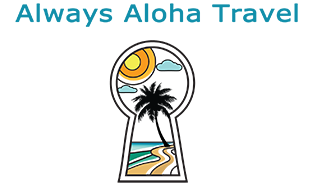
Everything is Beachy-Keen!
May 2, 2022
Travel…Huh?
August 30, 2022Scuba Diving in Hawaii
Aloha From Hawaii!
If You’re into Scuba Diving, then the Hawaiian islands are the place for YOU!
If scuba diving was something you thought you could never happen and you’re not  sure how you would do…then maybe try discover scuba diving, also known as Introduction to Scuba Diving! The name says it all and this is a way to find out if this is something you want to do on a full scale. When you take an introductory scuba course, it will teach you the basics to go diving a maximum of 40 feet with an instructor, the nice thing about it is, it only takes half a day.
sure how you would do…then maybe try discover scuba diving, also known as Introduction to Scuba Diving! The name says it all and this is a way to find out if this is something you want to do on a full scale. When you take an introductory scuba course, it will teach you the basics to go diving a maximum of 40 feet with an instructor, the nice thing about it is, it only takes half a day.
 sure how you would do…then maybe try discover scuba diving, also known as Introduction to Scuba Diving! The name says it all and this is a way to find out if this is something you want to do on a full scale. When you take an introductory scuba course, it will teach you the basics to go diving a maximum of 40 feet with an instructor, the nice thing about it is, it only takes half a day.
sure how you would do…then maybe try discover scuba diving, also known as Introduction to Scuba Diving! The name says it all and this is a way to find out if this is something you want to do on a full scale. When you take an introductory scuba course, it will teach you the basics to go diving a maximum of 40 feet with an instructor, the nice thing about it is, it only takes half a day.If after doing the introduction dive you love scuba diving, than it’s time to get certified.
In Hawaii, the majority of open water certifications are done in two sections, a) PADI E-learning, which is where you do the book work, to prepare yourself to do the open water portion of your certification, b) the open water portion usually consisting of 3 days of ocean training. After you have finished your open water certification, congratulations you are now open water certified and can dive anywhere in the world. But If you’re in Hawaii and don’t have the time to get everything done, you have a year after doing your e-learning to complete your open water certification.
Hawaii offers some of the best diving in the world, whether it is shore diving, diving with sharks; black tip, white tip, grays, tigers and the occasional whale shark. In the winter months…November until April, you may even be able to see a humpback whale while your diving. Each island offers it’s own diverse style of diving.
When you visit the beautiful island of Kauai, you have the chance of diving in one of the most diverse diving areas anywhere. Ni’ihau is only accessible from Kauai and offers some of the greatest variety of aquatic life any diver can hope to be in. Some of the largest concentration of monk seals, tiger sharks and spotted eagle rays and manta rays.
Moving down the island chain we come to Oahu, while Oahu is known for its big waves, it is also a great dive location, off the coast of the state capital Honolulu, there are multiple wrecks that any certified diver can dive on. In the summer months when the waves on the north shore are down, sharks cove, which is also part of the Pupukea Marine Sanctuary is also a great dive.
Continuing on down the island chain, we come to the island of Maui. Off the coast of Maui is one of the top 10 dive and snorkeling spots in the world….Molokini is well known for its visibility, it can range anywhere from 60 feet on a bad day to 100 feet on a great day. The most common boat dive sites in Maui, are the interior of molokini crater and than the second dive is either the backside of the crater or turtle town, which is located on the south side of the island. Most people can’t think of any reason it’s called turtle town (it might have something to do with all the turtles). If it’s wreck diving your looking for Maui will be able to satisfy those needs as well, just south of Lahaina is the Carthaginian, it was an old whaler’s museum that was sank as an artificial reef. Another wreck is the St. Anthony, Jerry Garcia decided he wanted a wreck to dive, so he got together with a group of like minded people to sink the boat off the south coast.
Lastly, we come to the biggest island in the chain…. Hawaii. The island of Hawaii is well known for its active volcano Kilauea but also known for night diving with the manta rays. The big island offers nightly diving and snorkeling with the manta rays and if you are feeling adventurous, you can also do a black water dive, where you have the opportunity to be 30 feet underwater without lights so you get the opportunity to study the bioluminescence.
If all that got you thinking about scuba diving and you’re planning on visiting Hawaii, contact Always Aloha Travel at 808-446-6274 or visit our website at www.alwaysalohatravel.com for more information! If you’re not certified and wish to be, you have a year after doing your e-learning to complete your open water certification. We look forward to seeing you under the water. ALOHA!



